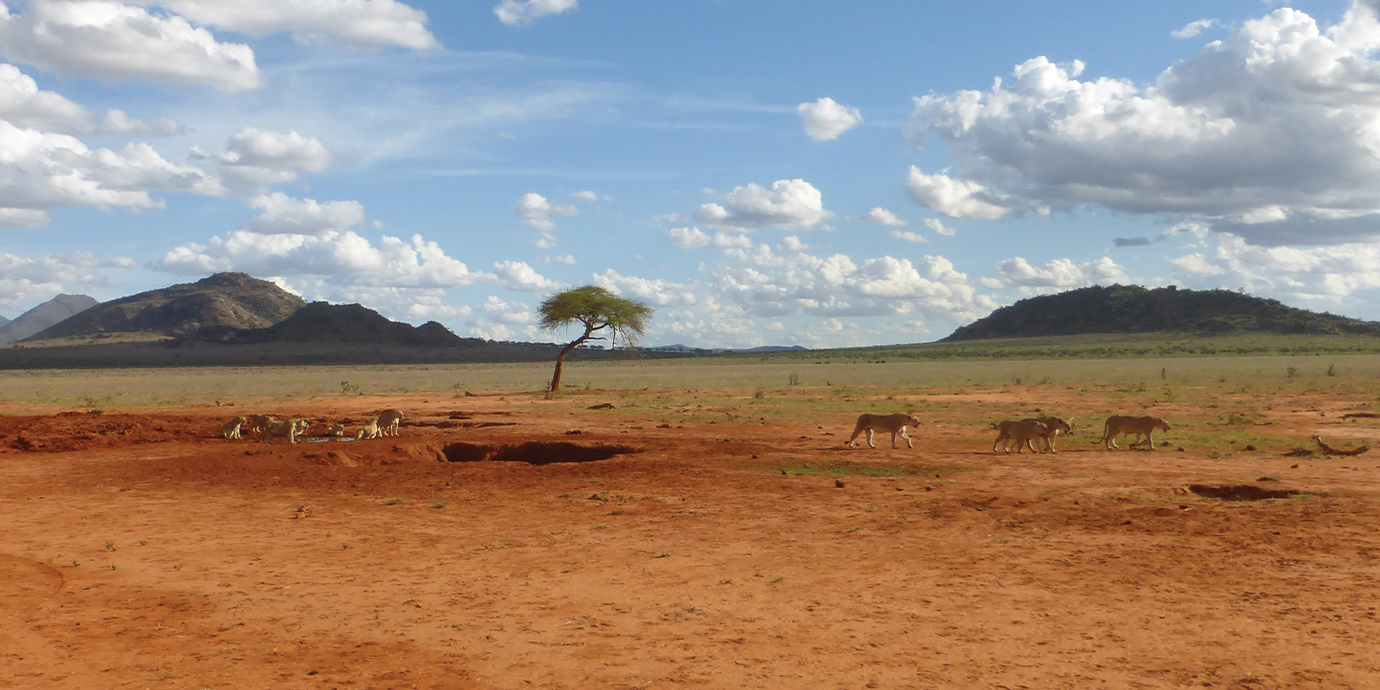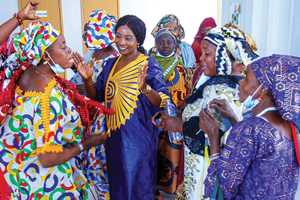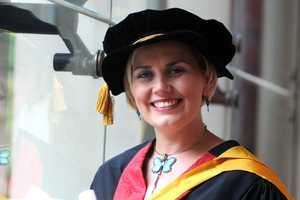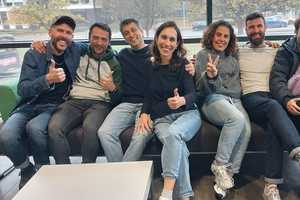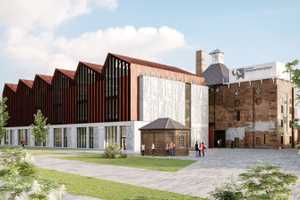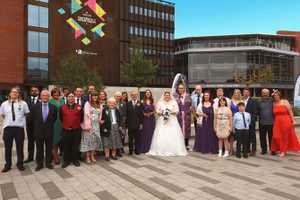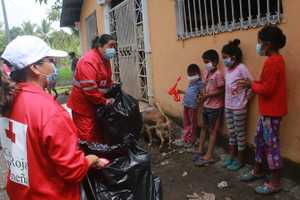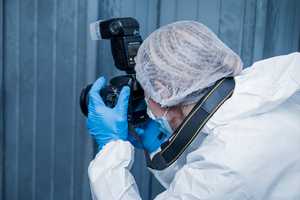When Ljubica Butkovic, a business development proposal manager for the International Livestock Research Institute (ILRI), accepted the Professional Excellence Award at the 2024 University of Wolverhampton Alumni Awards, it was a world away from her family’s origins over 30 years ago.
Born in Belgrade, Serbia, in 1990, Ljubica’s early years were shaped by the turbulence of the Balkan War and the breakup of Yugoslavia. There were heavy Western sanctions, and many families were fleeing to Europe and North America. With pre-school-aged children, Ljubica’s parents chose a different path.
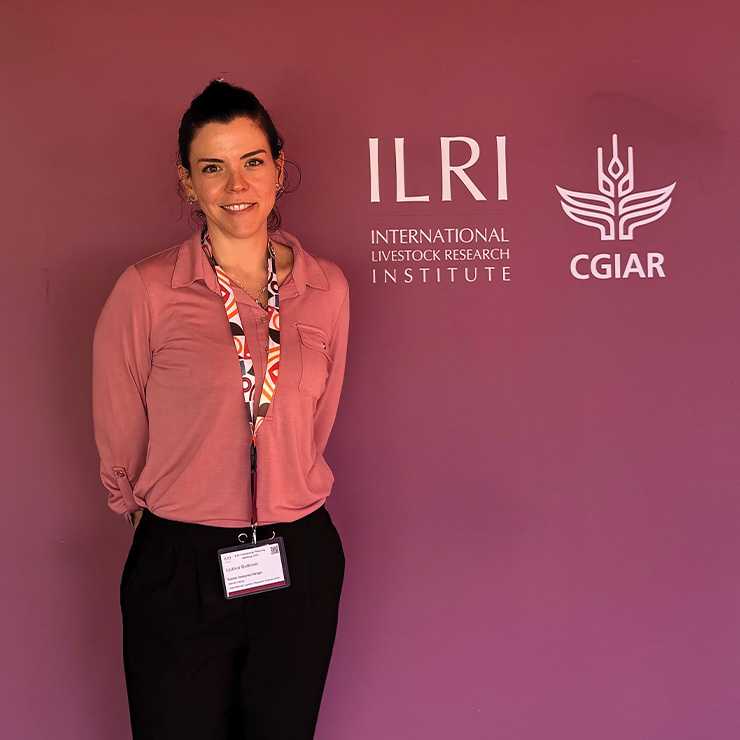
In a bold move, her father – a civil engineer who didn’t speak a word of English or Luganda – relocated to Uganda in 1993. It was a leap into the unknown, but soon enough, the rest of the family joined him, and by 1994, they had fully settled in East Africa.
“Our life actually started in Kampala, Uganda. We split our time between two different locations for about 11 years. Africa became home.” Ljubica’s childhood in Uganda was rich with outdoor adventures and, of course, animals. “I had all sorts of pets, from dogs, hamsters, parrots and guinea pigs, to tortoises, ducks and chicks, you name it – I even hatched a chicken egg under a lamp once.
“Animals were my world, I felt like I could connect with animals more than with people! Having grown up in Africa, I was always outside climbing trees, playing with whatever I could find. My love for nature and animals evolved and kept on growing.”
When the family moved to Kenya in 2005, she attended Braeburn School in Nairobi, following the British curriculum. As university choices loomed, her lifelong love for animals guided her decision. “Since I could talk, I said I wanted to be a doctor for animals. Initially, I wanted to be a vet, but my grades were not aligned with medical school intake requirements – reality set in.
“I started being very interested in the idea of research and seeing how wildlife and humans can coexist because poaching is a huge problem in Africa, with the encroachment of human settlements around protected areas. I was looking at animal science from a very different perspective, not just thinking about it from a medicine side.”
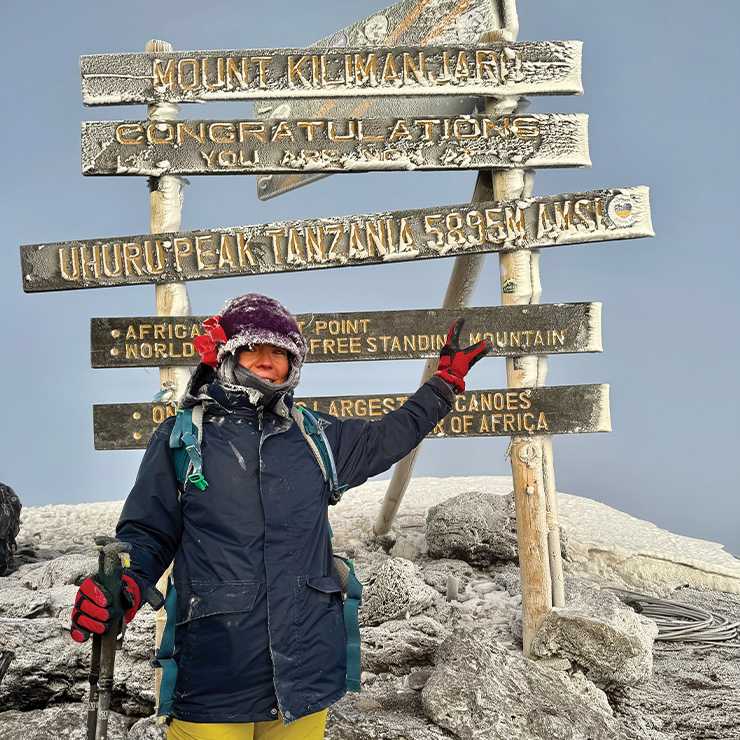
With support from her parents and inspired by her interest in conservation, she discovered the BSc (Hons) Animal Behaviour and Wildlife Conservation course at the University of Wolverhampton. It was a perfect fit. “Most universities split those disciplines, but Wolverhampton combined them, it was exactly what I was looking for.”
Her brother, who is hard of hearing, was also heading to university, and Wolverhampton was ideal for its excellent disability support. Financially, it made sense for the siblings to stay together, and so they moved to a small, rented flat in Horsley Fields in the city centre. While her brother continued his Master’s studies at Wolverhampton in conservation biology. Ljubica commuted to and from Derby three times a week to complete her Master’s.
During her studies, Ljubica’s assignments consistently focused on African ecosystems and the fauna and landscape she had grown to love. Her dissertation, a field study on lion ecology in Kenya’s Masai Mara, even won the university’s Biology prize. “I spent two months tracking lions in the wild. The university was incredibly supportive, even if they didn’t know how I’d pull it off!”
While her passion for conservation burned bright, life after graduation presented new challenges. With her heart set on returning to Kenya, job opportunities were limited.
“If you’re following a parent into their sector, you can learn about it from them. My dad’s network was in construction, not conservation – so I had to build my knowledge and network from scratch.”
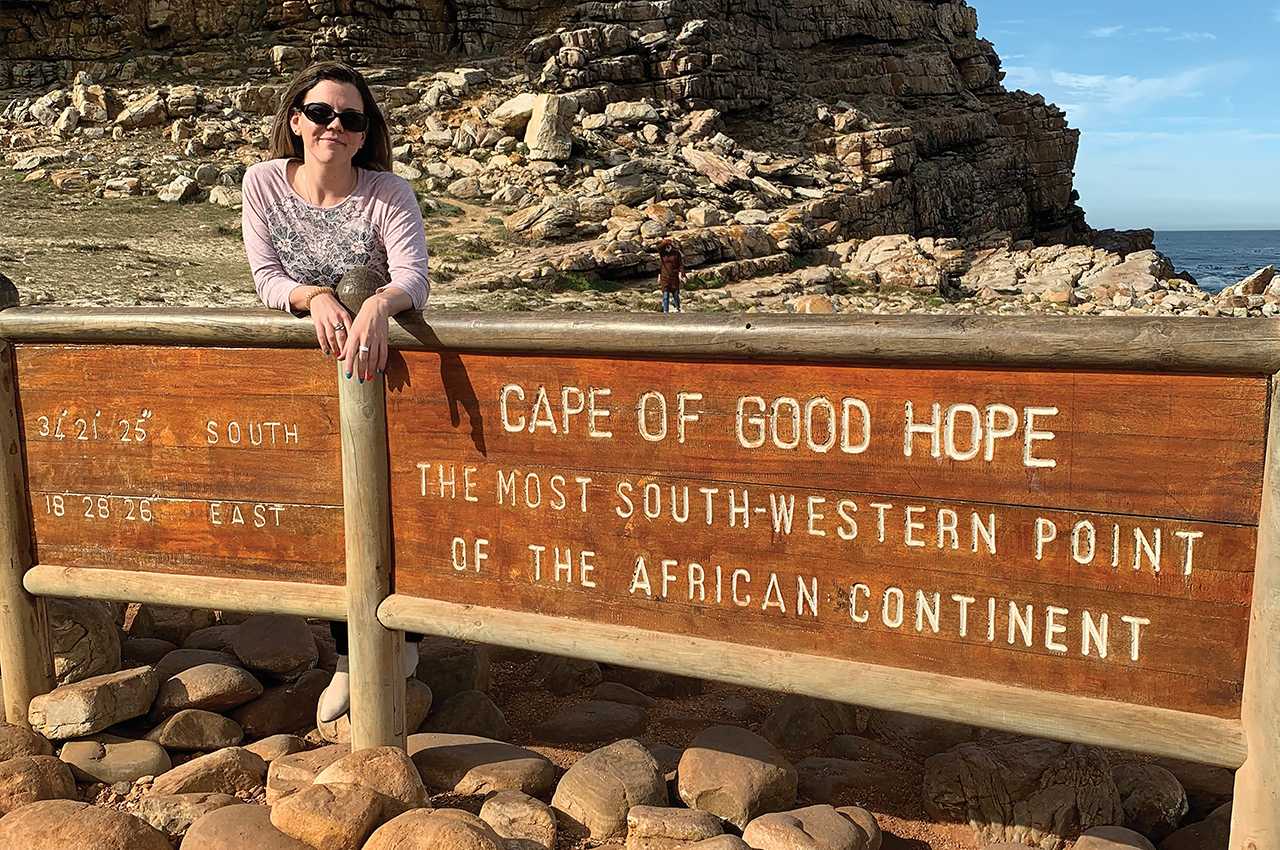
After months of job hunting, a friend sent her an internship opening at the United Nations. “I didn’t think I stood a chance, but I applied anyway.” As fate would have it, the woman reviewing her application was the mother of one of Ljubica’s classmates from her school days.
That one chance encounter turned into a 13-month internship that kick-started her career. “She became my mentor. She always told me, ‘Make yourself indispensable, learn everything, even what’s not your job. At this point in your career you need to build your skills, your knowledge, your experience. Don't say no to anything that comes your way.’ That advice shaped my work ethic.
“I learned things that help me to this day. Whenever I meet somebody younger than me, I tell them: ‘Don't be afraid to make mistakes, you’ll learn from them.’ When you first start working, you get so lost in trying to be too perfect that you forget to be yourself and allow yourself to just be human and to mess up.”
Soon after, Ljubica landed a full-time role with the United Nations Office for Project Services (UNOPS), focusing on partnership development in Somalia. She discovered her personable nature gave her a real skill in building relationships with donors. In a short period of time she managed to secure millions of dollars’ worth of funding for critical infrastructure and security-related development projects. “I had to re-educate myself completely in security-sector reform infrastructure, conflict. It was intense. But building relationships with donors became quite interesting and fun.”
Despite successes, including co-designing the development of two highly notable programmes in Somalia aimed at security sector reform; successfully co-leading the development of a project aimed to support the Somali National Army; and supporting the preparation of a multi-million-dollar project focused on crisis recovery and resilience in Somalia, she began to feel disconnected from her roots in conservation. “I felt like I was disowning my younger self. I didn’t study wildlife just to leave it behind.” She enrolled on a Master’s in security, conflict and international development via distance learning at the University of Leicester, juggling full-time work and part-time study. “It was one of the hardest things I’ve done, but I knew I needed to bridge both parts of my career.”
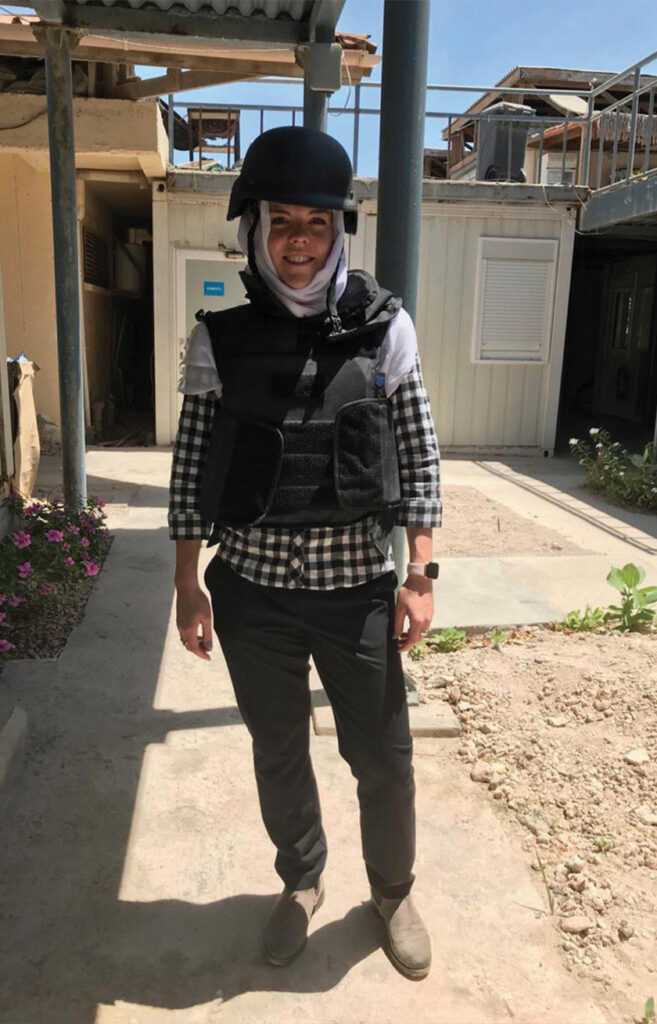
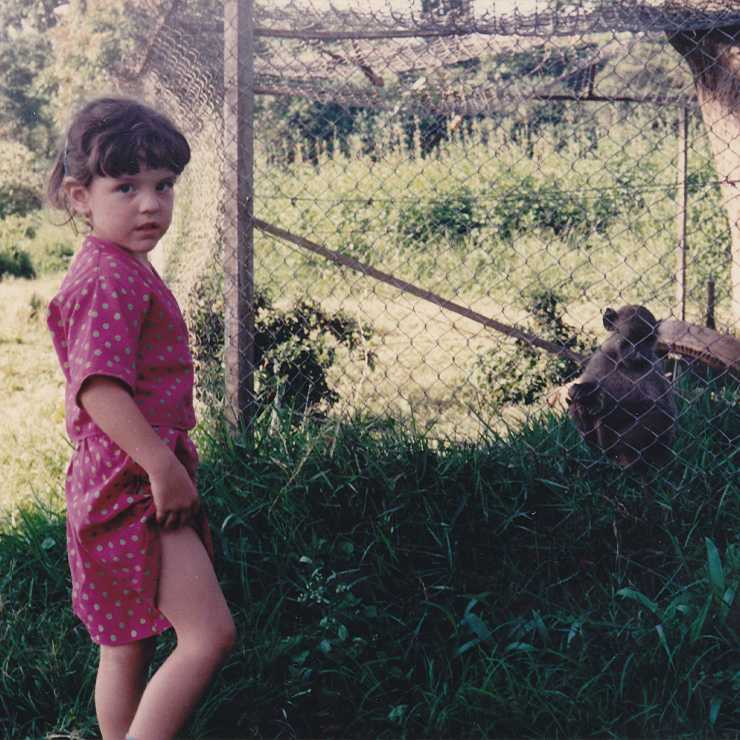
When a resource mobilisation coordinator role became available at the Centre for International Forestry Research, she jumped at the opportunity to apply and was thrilled to be offered the job: “It was my way back to conservation and research.”
Then came the pandemic. “I started the job just as Covid-19 hit. I couldn’t meet anyone. I went from high-adrenaline UN work to complete isolation. It was a shock to the system.”
Still, she persevered, building trust among scientists and rediscovering her passion for research. Her work focused on climate change, forestry and agroforestry, and the role of science in development. “It was eye-opening to see how much science drives solutions.”
Just as she was considering a PhD, a job post on LinkedIn caught her eye. “It was for a business development proposal manager role at the International Livestock Research Institute (ILRI). I didn’t fully meet the criteria, but it was the closing date for applications, and I applied anyway! When I got an email inviting me for a screening interview, I thought: ‘Maybe it's a sign that the universe is telling me not do the PhD’”.
Her screening interview didn’t entirely go smoothly either – she was in New Zealand for her best friend’s wedding when she was notified: “I’d been travelling, I was jetlagged and did the interview at 10.30pm on the night before the wedding! I hadn’t had the chance to prepare or read up about the organisation.” Putting the experience in the past, eight weeks passed, and out-of-the-blue, Ljubica was invited to a full interview – and was offered the job.
Based in Nairobi, Ljubica supports ILRI’s mission to help smallholder farmers in Africa and Asia improve sustainable livestock management. “I manage the institution’s proposal development efforts in close collaboration with our scientists – it’s complex but deeply rewarding work.”
At ILRI, Ljubica finds herself working closely with scientists, translating their technical expertise into high-quality, fundable proposals. “They’re the technical brains behind the work. They provide the science; I package it all together – including quality assurance, reviews, and donor outreach and engagement.”
She’s involved in work that’s of critical environmental importance, and that has huge impact for communities in the global south. “As a global research organisation, our work focuses on improving livestock systems in developing countries. We work on everything from animal health and genetics to sustainable feed and climate resilience, all with the goal of reducing poverty, improving food security, and making livestock farming more sustainable.”
Reflecting on her journey, she says:
If there’s one thing I’ve learned, it’s that if you see an opportunity, you should go for it, even if you don’t feel prepared! Sometimes we underestimate our own abilities, and it can take someone else to see them and bring them out.
The future of the donor landscape may look challenging in the year ahead with the US (traditionally a huge donor for international support) pulling back on funding. However, with Ljubica’s professional skills and personable character, it’s clear she’ll ride any storms and approach any opportunities the future brings with optimism.
